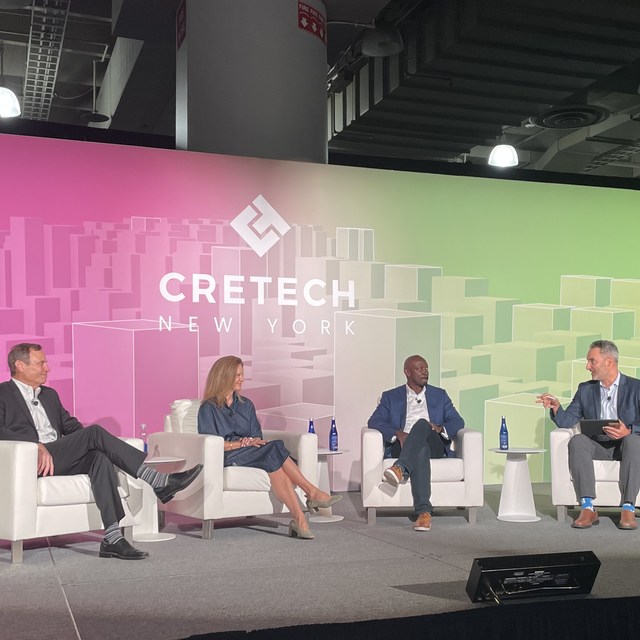Customer Experience Must Be Prioritized in AI Boom

We are in the midst of the artificial intelligence boom – but prioritizing customer experience still prevails, regardless of how much technology will influence real estate in the future.
This is something that AvalonBay Communities understands, and it's essential to adapt and provide the best possible experience to customers. How do you do that? The companies’ Lisa Bongardt (regional senior vice president of property operations), Sean Breslin (chief operating officer) and Rukevbe Esi, senior vice president and chief digital officer, weighed in during a panel discussion at CREtech New York 2025.
AI Uses
When it comes to AI use, AvalonBay focuses on four categories, as laid out by Esi: Customer interactions, decision support, enterprise support and back office support.
“The primary focus of each of these teams is to deliver on a portion of the customer journey that delivers on the North Star that we've identified as an organization,” he explained.
“We've invested a significant amount in technology to improve our interactions with our customers.”
The company, which operates as a REIT focusing on building and acquiring apartment communities, particularly utilizes AI to schedule tours, engage with customers on-site and follow up with their experience.
Don’t Overrely on AI
While AI has changed the landscape today, AvalonBay does warn about over-dependence on the digital tool. Sometimes, it’s not perfect for every situation.
“When it doesn't work or [the] customer just doesn't want to work with the tool, they just need a different route,” Bongardt emphasized.
“When we don't have an escape hatch that an associate can step in and support, we get into trouble.”
A big part of avoiding issues, according to Breslin, is having something that’s almost always available to assist.
“We do have a centralized function at our Customer Care Center that's working seven days a week for extended hours, like 12 hours a day in many cases,” he said.
“Those people need to be able to have access to the same information or the same data that the digital tool enabled AI access to answer those questions.”
Neighborhood Model Explained
That’s why you need to have a balance when using AI and associates. And when everything fails – have a backup plan.
This approach is critical in the AvalonBay neighborhood model, where it combines nearby regional properties and turns them into a neighborhood. This, according to Bongardt, creates a role for a specialist – and coupled with digital tools – this makes employees even better at solving problems.
“We're changing their role with the property level,” she noted of the evolving landscape with associates.
“The interesting thing was, they're more engaged. They're enjoying the work, because they have select tasks they're working on. They have a sense of accomplishment. And so their job satisfaction [is] better, and we weren't really sure how they were going to respond to it.”
Overall, the takeaway from the panel discussions at CREtech New York 2025 was that AI is here to stay and it’s going to change jobs – not necessarily replace them. It’s all about creating an experience that makes tasks easier, faster and cost-efficient. Particularly, Breslin estimates that AI will change 95 percent of the jobs in the workforce.
In total, AvalonBay manages properties in 12 states and Washington, D.C
Source: GlobeSt/ALM